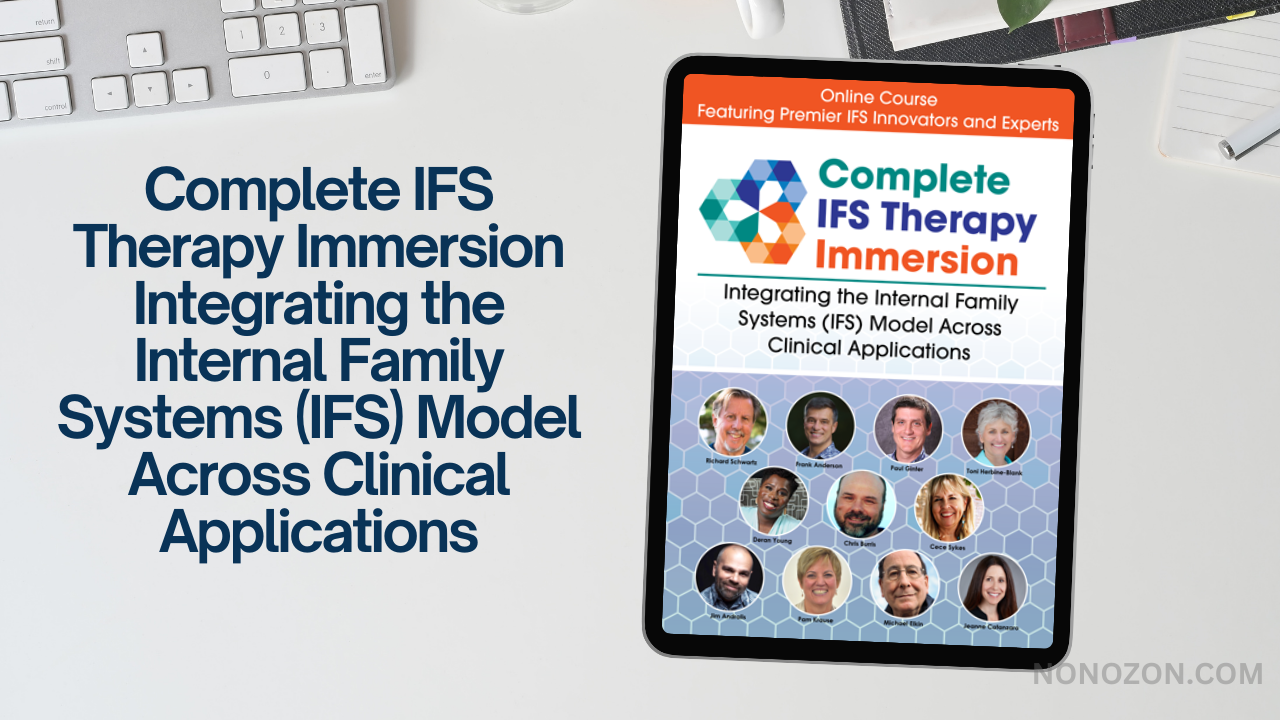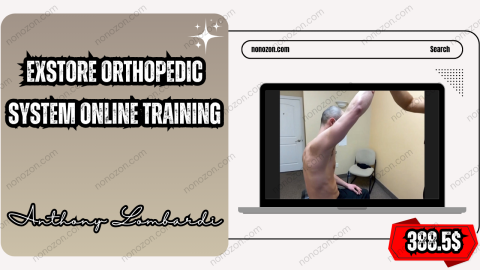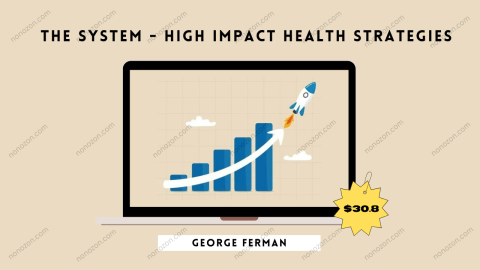Complete IFS Therapy Immersion Integrating the Internal Family Systems (IFS) Model Across Clinical Applications
by Author
In-Depth Review of the Complete IFS Therapy Immersion: Applying Internal Family Systems in Clinical Practice
Check proof of content here:
In the ever-evolving field of mental health, practitioners are often inundated with emerging methods and frameworks. Among the most notable of these is the Internal Family Systems (IFS) model, pioneered by Dr. Richard Schwartz. Offering a unique and compassionate view of the human psyche—as a system of inner parts—the IFS approach has become a favored modality for addressing deep-seated psychological issues. The Complete IFS Therapy Immersion, led by Dr. Frank Anderson, provides an accessible and thorough online course designed to help clinicians integrate IFS into their work across a wide range of issues, including trauma, anxiety, addiction, and attachment injuries. With guidance from respected IFS experts, the course blends theory and practice into a well-rounded and impactful experience.
Program Structure and Delivery
Comprehensive and Practitioner-Centric Design
The course is carefully constructed with the mental health professional in mind. Rather than offering abstract concepts alone, it combines foundational theory with direct clinical applications, ensuring therapists are equipped to apply what they learn in real-world settings. The curriculum unfolds in a series of interconnected components:
Foundational Introduction: The course opens with an overview of IFS theory, setting the stage for deeper exploration. Participants are introduced to the central tenets of the model, including the concept of “parts,” the Self, and internal systems dynamics.
Weekly Application Modules: On-demand video lessons address specific therapeutic themes such as complex trauma, eating disorders, addiction, and relational wounds. These modules highlight the model’s adaptability for diverse populations, including children and LGBTQIA+ clients.
Recorded Q&A Sessions: These recordings allow participants to absorb expert responses to nuanced clinical questions. This aspect brings additional clarity and helps reinforce theoretical learning through practitioner dialogue.
Downloadable Tools: A library of practical handouts and session aids is available, giving therapists immediate resources to use with clients—streamlining the integration of IFS into various therapeutic modalities.
Participant Reflections and Outcomes
Past attendees of the IFS Therapy Immersion consistently praise the quality of instruction and the program’s impact on their clinical perspective. Many speak of the instructors' engaging presence and how their diverse backgrounds enrich the learning experience.
The influence on clinical work is often described as transformative. One clinician shared, “I no longer see my clients as broken or symptomatic—I see them as systems with protectors, exiles, and a core Self. That shift alone has changed how I practice.”
Such feedback underscores the power of the IFS model to enhance therapeutic empathy and improve outcomes, particularly in complex cases.
Topics and Clinical Relevance
Expanding IFS Across Modalities
A key strength of this course lies in its practical demonstration of IFS across multiple clinical domains. Through focused modules, the course offers:
Complex PTSD Resolution: Teaching clinicians how to navigate internal polarizations and facilitate healing for traumatized parts.
Addiction Recovery Support: Helping identify and engage parts involved in compulsive behaviors with compassion, rather than shame.
Eating Disorder Treatment: Guiding clients toward inner harmony and self-trust by addressing critical and protective parts related to food and body image.
This breadth makes the immersion ideal for therapists with various specializations, reinforcing the IFS model as a flexible and integrative tool.
Connection and Community
Beyond content delivery, the course fosters an atmosphere of support and collegiality. Participants are encouraged to share experiences, discuss clinical challenges, and celebrate progress with one another. This sense of belonging can be profoundly helpful, especially for therapists who often work in isolation.
As one participant noted, “The course wasn’t just about learning—it was about belonging. It became a space where I could reflect on my own parts while growing as a clinician.”
This community aspect adds another layer of depth, allowing practitioners to benefit from peer feedback and emotional resonance.
Final Thoughts
The Complete IFS Therapy Immersion is a valuable and inspiring course for mental health professionals committed to deepening their clinical practice. With its integration of foundational IFS concepts, real-world applications, and a robust support structure, the course serves as both a training platform and a professional home for those who wish to practice with more compassion, insight, and efficacy.
More than just a clinical framework, IFS—when taught in this immersive format—becomes a way of seeing clients and oneself through a lens of internal coherence and healing. Whether you're new to the model or seeking to refine your skills, this course offers a profound journey into the heart of therapeutic transformation.





